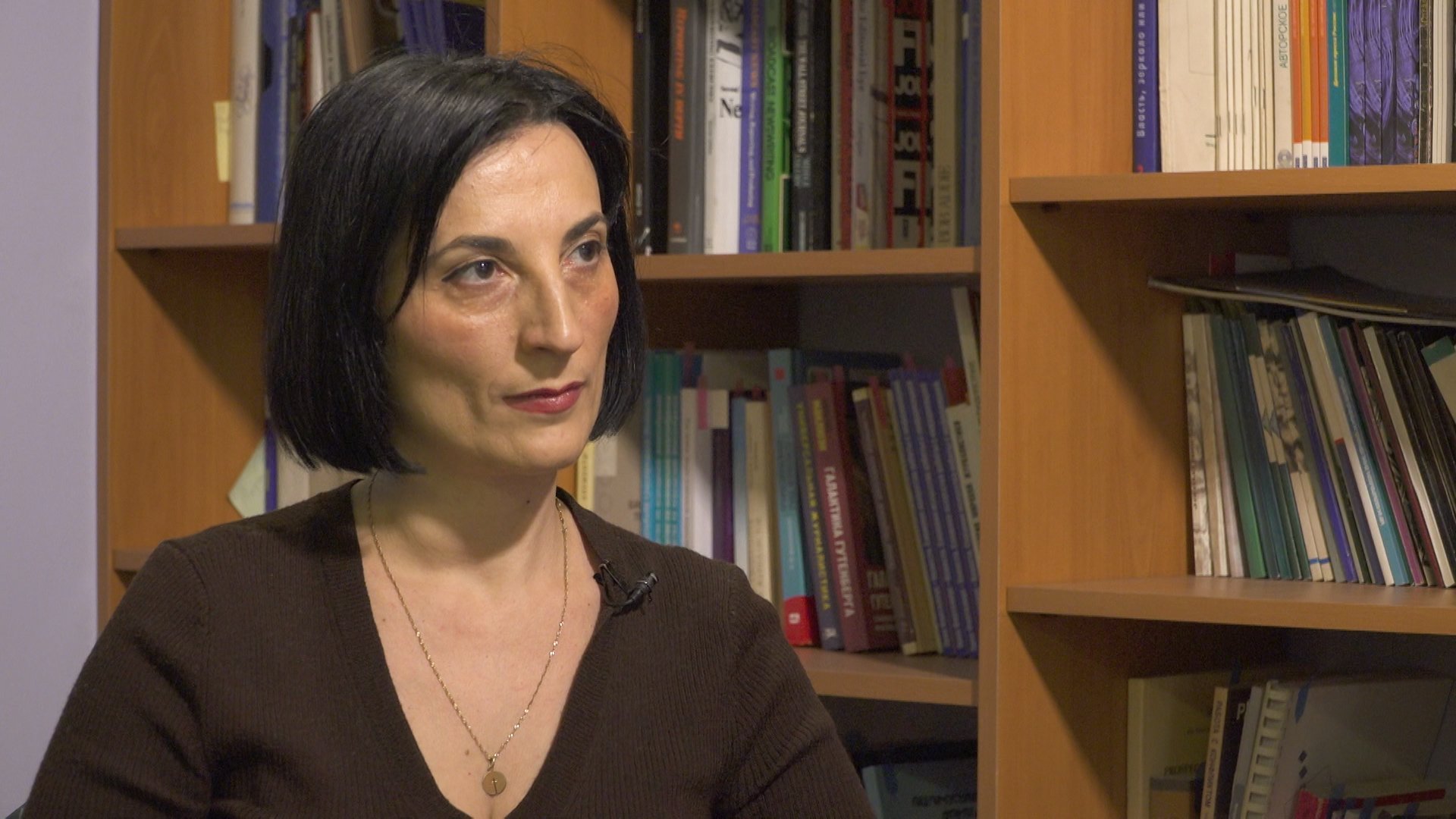
Students of the YSU Faculty of Journalism studied the course “Media Regulation and Self-Regulation” in the spring semester of 2021 with a new textbook entitled “Media Legislation.”
The topics of the textbook will be the constitutional guarantees of freedom of expression and press, national and international legal regulations on freedom of expression, the concept and meaning of freedom of information.
The textbook was created with the support of the Media Initiatives Center. The author is Shushan Doydoyan, YSU Associate Professor, Founding Director of the Freedom of Information Center. She has been teaching “Journalistic Ethics,” “Media Legislation,” and “Media Regulation and Self-Regulation” at the Faculty of Journalism for 24 years.
In the early 2000s, when I was studying at YSU Faculty of Journalism, you taught “Media and Legislation.” There was no textbook on that topic at that time, we were studying with the materials provided by you. When was the first manual created?
I have been teaching since 1997, but the first edition of the textbook was published later, in 2008, with the support of UNESCO.
In this field, there is constant news. There have been significant changes in the media and related legislation over the last ten years. There was a great need to re-edit our textbook, make additions to the original version and re-publish it.
In the updated version of the textbook, we have tried to comprehensively present the most important basic regulations of the media field, we have referred to the Constitution, international documents and the most important and priority provisions of the local legislation in separate chapters. This helps students to have a systematic and complete source of information to enrich their knowledge.
To what extent is this knowledge applicable for a journalist who graduated from the Faculty of Journalism?
Graduates of journalism have the basic knowledge they need before entering the media field, such as how to defend themselves when an official unlawfully refuses to provide information or when he or she is accused of insult or defamation. Knowing the legislation very well, they can formulate what they have to say and address the topic of public importance in their publication in such a way that they cannot be accused.
It is another question to what extent the knowledge provided by the university is demanded by the editorial offices today. The same can be said about journalistic ethics. Students learn and have a very good idea of what is possible or not, but in many editorial offices, those are not a priority.
If a journalist acts within the framework of law and ethics, is objective and impartial, it is, unfortunately, not profitable. We all have a very good idea that today political, economic, personal interests come and collide with the public interest. Therefore, this knowledge is important not only for our students but also for the general media field.
How have the changes in media legislation in Armenia affected your “Media Regulation and Self-Regulation” course?
The approaches to teaching the subject have changed dramatically over the years. When the first version of our textbook was being developed, there was a global change in the law on defamation and insult. 3-4 years later this article was decriminalized, the whole concept of the sphere was changed. Naturally, the relevant section was radically changed in the new textbook.
Completely new regulations were also in the field of freedom of information, in 2015 a completely new legislation in the field of personal data protection was formed in Armenia. The related section is completely new in the textbook, and previously all the material was based on the experience of international documents. We paid special attention to the peculiarities of the journalist’s right to privacy and legal regulation of the coverage of trials.
Today, teaching methods have also changed, including new technologies and the capabilities of online educational platforms. The impact of this process was also taken into account, online tools began to play a more serious role for us.
As you mentioned, this textbook is not intended for students only.
Yes, the target audience of this textbook is very comprehensive, it is not only a practical guide for journalists but can also be useful for media theorists, lawyers and advocates who, for example, defend the interests of journalists in court. Various situations are presented in detail here.
The textbook can also be a very useful supporting material for MPs who are initiating changes in the field of media legislation to understand what gaps and problems there are that can be addressed. While writing the book, I also had in mind them, because recently, unfortunately, there have been no initiatives of quality by the deputies.
Several hundred copies of the manual were provided to the YSU Faculty of Journalism, and today students are already learning from it. It has also been provided to several libraries. In addition to the printed copy, “Media Legislation is also available online to anyone interested in the field. The manual can be downloaded both from the Freedom of Information Center website and from the Laboratory section of media.am.
Interview by Mane Grigoryan

Add new comment
Comments by Media.am readers become public after moderation. We urge our readers not to leave anonymous comments. It’s always nice to know with whom one is speaking.
We do not publish comments that contain profanities, non-normative lexicon, personal attacks or threats. We do not publish comments that spread hate.